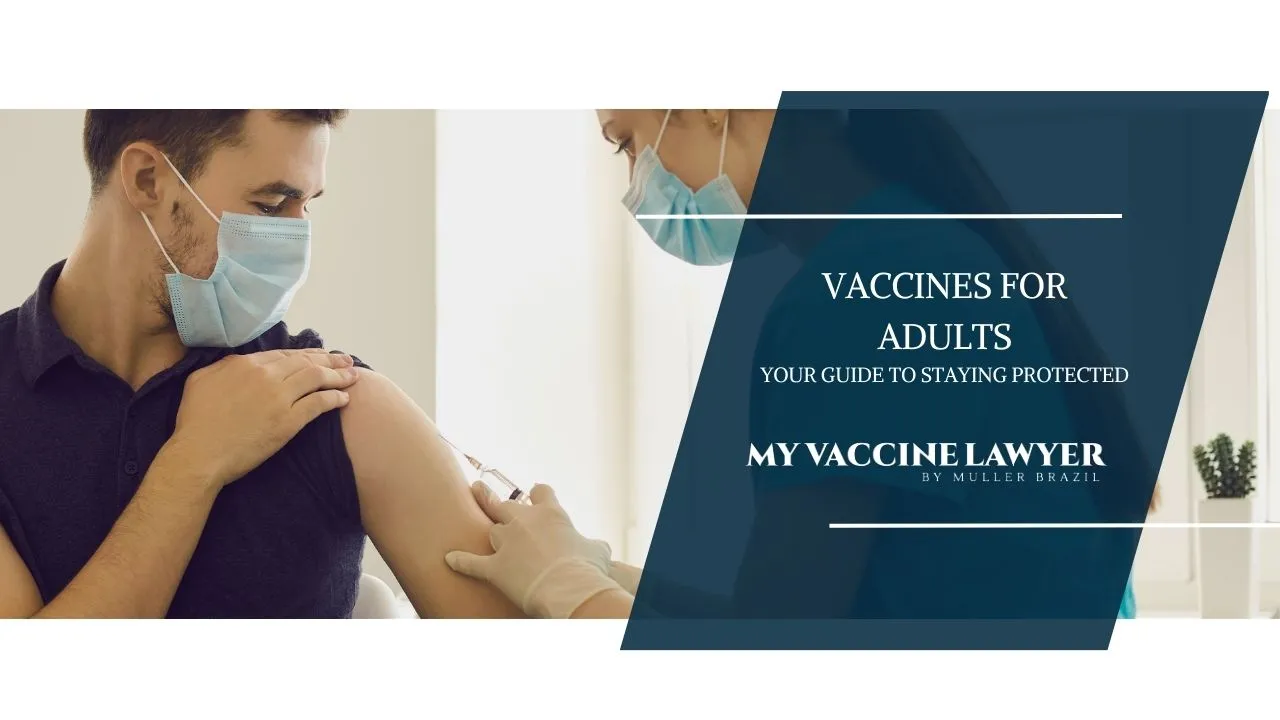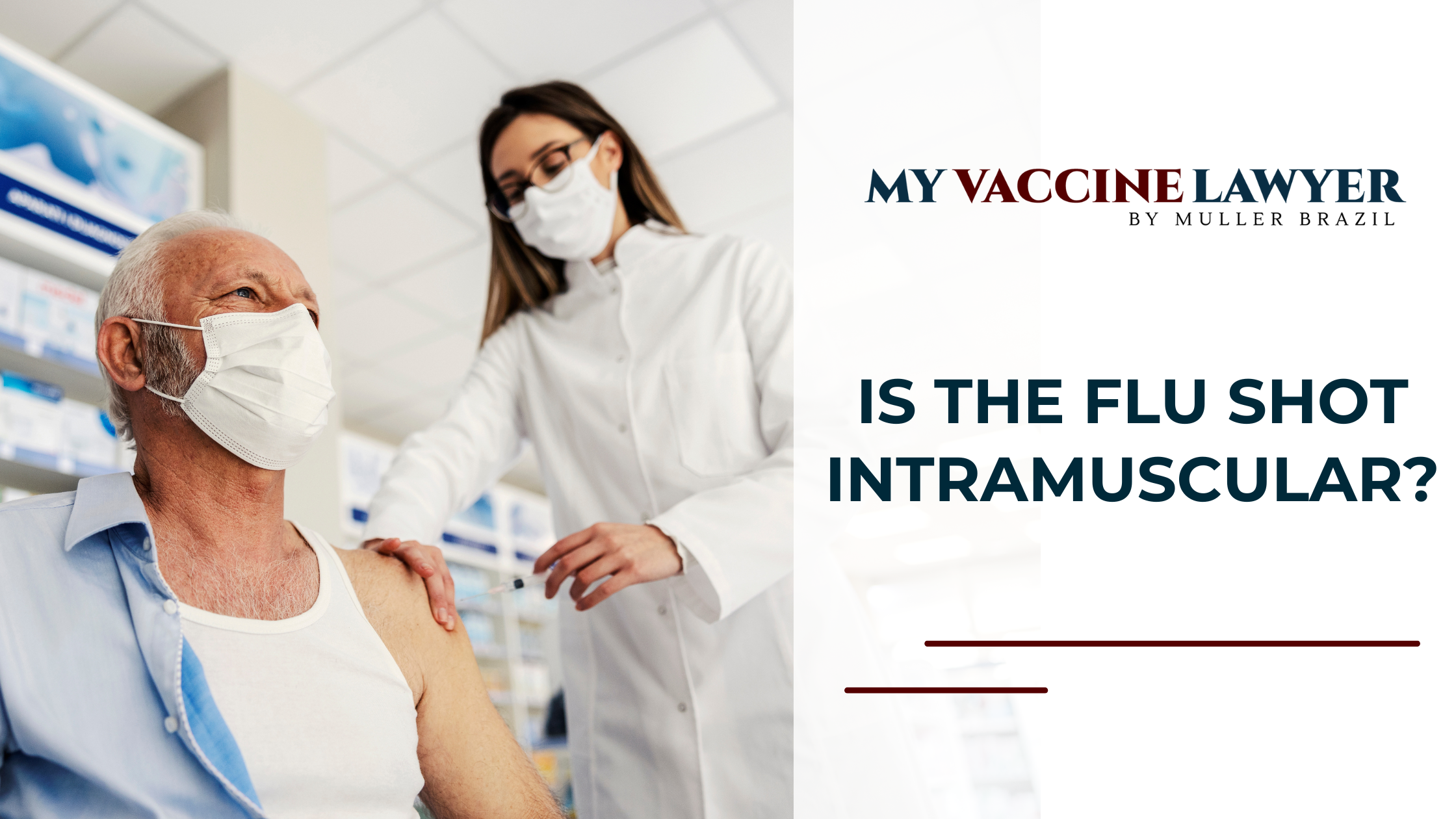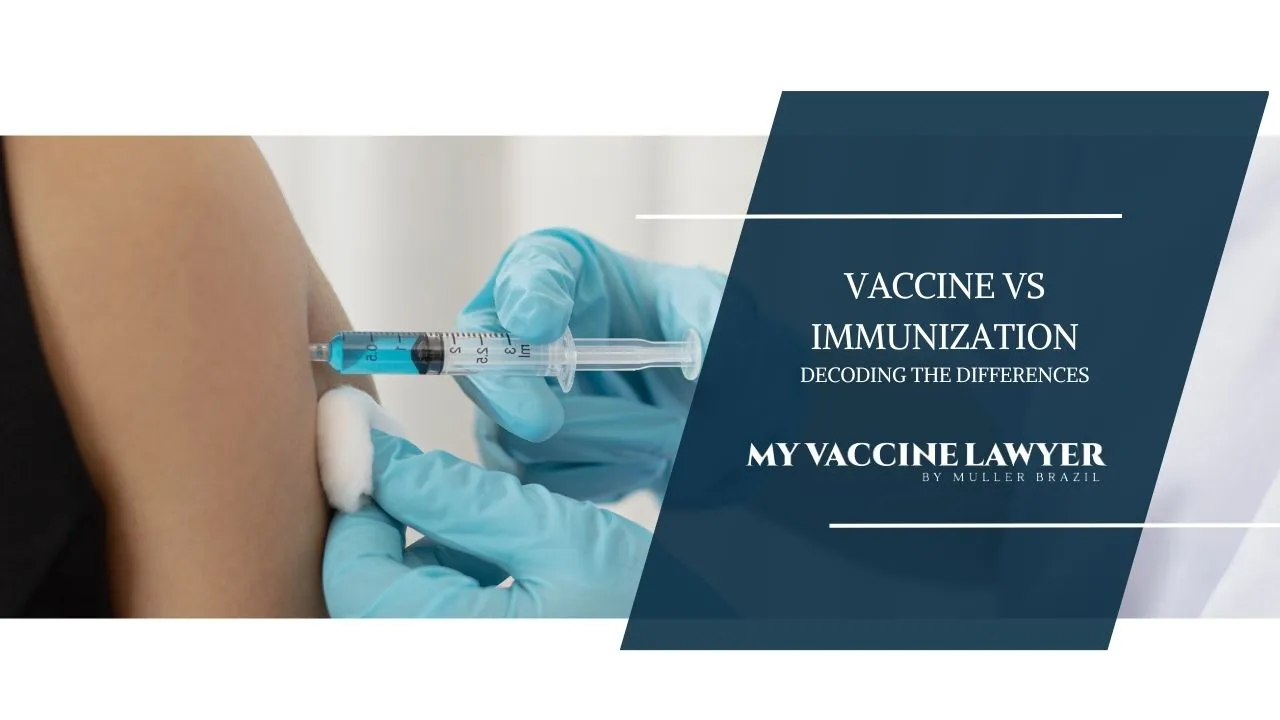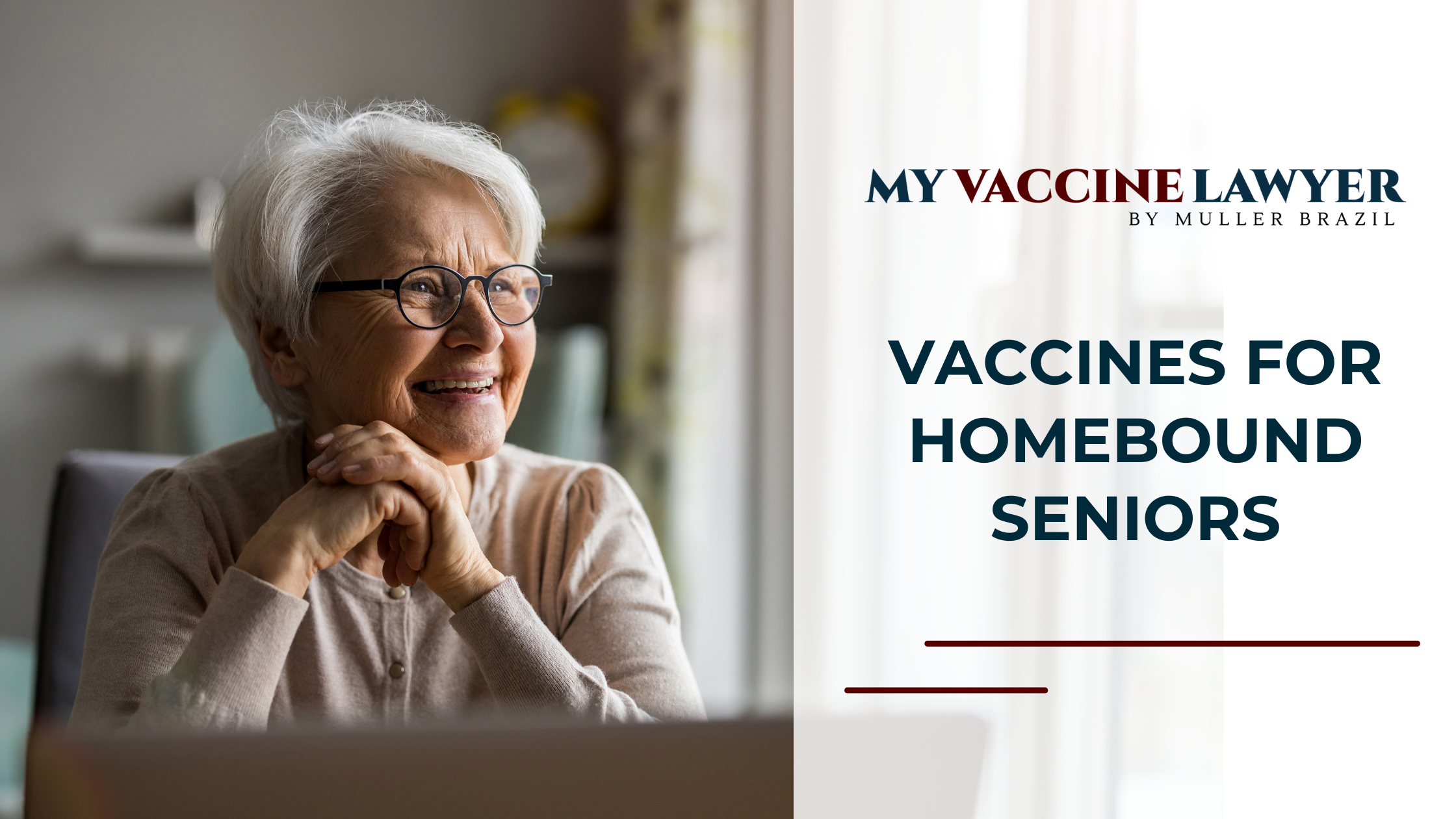Essential Adult Vaccines: A Comprehensive Protection Guide
Vaccines prevent more than 2.5 million deaths in the United States each year. Despite this staggering statistic, understanding adult vaccinations can...
3 min read
Vaccine Injury Law Resources / Vaccines / Vaccines for Homebound Seniors
 Max Muller
:
Jan 9, 2025 8:07:00 AM
Max Muller
:
Jan 9, 2025 8:07:00 AM
Vaccines play an important role in protecting older adults, especially those who are homebound and face specific challenges in accessing healthcare services.
With the ongoing risks of COVID-19 and seasonal illnesses like the flu, guaranteeing vaccination for homebound individuals is necessary to prevent severe illness, hospitalization, or worse. Fortunately, programs supported by local health departments and health and human services make it possible for seniors to receive vaccines, including booster doses, in their homes.
Here we will discuss the options available to help homebound individuals stay vaccinated, highlighting vaccine access, planning tips, and resources to overcome common barriers.
For older adults who are homebound, getting vaccinated doesn’t have to be complicated. Programs through Medicare and local health departments make it possible for individuals to receive the COVID-19 vaccine, including booster doses, in the comfort of their own homes. These services are often provided at no cost, offering an affordable and accessible way to protect high-risk individuals.
Resources include:
Making sure that homebound individuals receive the protection they need starts with knowing where to look. Families and caregivers are encouraged to visit official resources, such as vaccines.gov or local health department websites, for additional information on available programs.
Take Control of Your Injury Today
Making sure that homebound individuals receive vaccines requires careful planning and support from healthcare providers and caregivers. Effective preparation minimizes delays and helps meet the specific needs of older adults and those with disabilities.
Healthcare teams should prioritize providing information about vaccine safety, second doses, and possible side effects in multiple languages to ensure accessibility. Families are encouraged to visit trusted sites like the CDC for guidance and updates.
Thorough pre-vaccination planning guarantees that the process is smooth, safe, and effective, helping to protect residents from hospitalization and serious illness.
Despite efforts to expand vaccine access, many homebound individuals and older adults still face challenges. Issues like transportation limitations, disabilities, and lack of insurance can prevent some from getting vaccinated. Addressing these barriers requires strategic solutions and partnerships.
Collaborations between public health agencies, local health departments, and aging service organizations are necessary. These partnerships provide:
Through these efforts, vaccine access continues to improve, protecting more older adults and high-risk patients from hospitalization and severe illness.
Homebound individuals and caregivers can easily find vaccination resources through trusted organizations:
Families and caregivers are encouraged to assist with forms, medications, and appointments to keep their loved ones protected.
While vaccines protect millions of older adults and high-risk individuals, complications can occur. If you or a loved one experienced unexpected side effects, reactions, or injuries after a vaccination, it’s important to know your legal options.
At My Vaccine Lawyer, we specialize in handling vaccine injury cases. Our legal team is here to answer your questions, provide guidance, and fight for the assistance you deserve.
Contact us today to schedule a free consultation and learn more about your options.
Mr. Muller currently devotes the majority of his law practice to aggressively fighting for the victims of unsafe drug and medical device injuries, as well as vaccine injuries and vaccine reactions involving the flu shot, TDaP/DTaP vaccine, and more. He has handled hundreds of SIRVA injury cases (shoulder injury related to vaccine administration), especially those involving bursitis, tendonitis, frozen shoulder, and rotator cuff tears. Mr. Muller also handles cases where vaccines caused serious nerve injuries such as Guillain-Barre Syndrome. Mr. Muller has recovered millions of dollars in compensation for his clients in the Vaccine Injury Compensation Program.

Vaccines prevent more than 2.5 million deaths in the United States each year. Despite this staggering statistic, understanding adult vaccinations can...

Yes, the flu shot is administered intramuscularly in most cases, typically in the deltoid muscle of the upper arm.

Vaccines provide the blueprints for our immune systems to combat diseases effectively. Immunization, evidence of the success of these vaccines, is...
